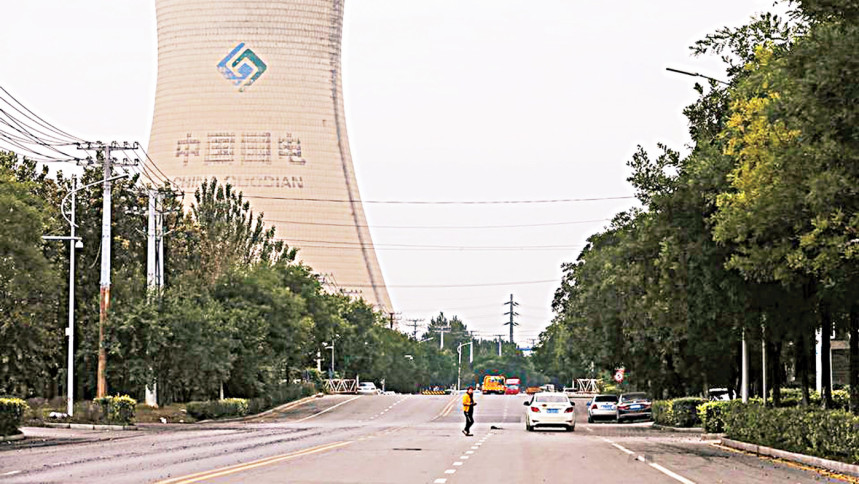China coal prices hit record high

China's thermal coal prices surged to fresh record highs on Wednesday as recent floods in a key coal producing province worsened a supply crunch, just as new efforts by Beijing to liberalise power prices boosted demand from power generators.
China, the world's largest coal consumer, has been grappling with a growing energy crisis brought on by shortages and record high prices for the fuel.
The government has taken a range of steps to boost coal production and manage electricity demand at industrial plants, while power producers and other coal users have been ramping up imports.
Local governments in top Chinese coal producing areas Shanxi and Inner Mongolia have ordered some 200 mines to boost output, but incessant rain flooded 60 mines in Shanxi.
Four mines with a combined annual output capacity of 4.8 million tonnes remained shut, a Shanxi official told a press conference on Tuesday.
The most-active January Zhengzhou thermal coal futures touched a record high of 1,640 yuan ($254.44) per tonne in Wednesday trade, having surged almost three-fold year-to-date.
The rise in prices comes a day after Beijing announced it would allow power plants to charge commercial customers market-based prices for power, in a significant break from previous policy that allowed industry to lock in fixed-price power deals with suppliers.
The policy shift, which is expected to spur more coal-fired power generation, is the latest in a raft of measures designed to ease the power supply crunch that has forced several industry sectors in China to curb power use in recent weeks.
Despite the power constraints, data on Wednesday showed overall export growth from the world's second-largest economy unexpectedly accelerated in September, as solid global demand offset some of the pressures on factories from power shortages and other issues.
"Although power rationing doesnt appear to have derailed the export sector so far, there is still a risk that it could do so in the coming weeks," Julian Evans-Pritchard, Senior China Economist at Capital Economics said in a note.
"And while officials have made clear that the focus of power rationing will be energy-intensive sectors such as metals and chemicals, the hit to output in these industries could filter through supply chains and hurt downstream exporters."
The country, the world's biggest steel producer, on Wednesday directed steel mills in 28 cities to cut winter output by at least 30 per cent to achieve output and climate goals.
China's mammoth industrial engine, which cranks out mountains of electronics, toys, clothes and equipment for global markets, saw total power consumption in September and year to date rise year-on-year.
Electricity consumption in September rose 6.8 per cent from a year earlier 694.7 billion kilowatt hours (kwh), bringing total power use over the first nine months up by 12.9 per cent year-on-year, the National Energy Administration said on Wednesday.
China is not the only nation struggling with power supplies, which has led to fuel shortages and blackouts in some countries.
The crisis has highlighted the difficulty in cutting the global economy's dependency on fossil fuels as world leaders seek to revive efforts to tackle climate change at talks next month in Glasgow.
Data released on Wednesday showed China coal imports rose to their highest this year last month.
China brought in 32.88 million tonnes of coal in September, up 76 per cent from a year earlier, data from the General Administration of Customs showed on Wednesday. The monthly total was the fifth largest on record, according to Reuters calculations.
Reuters reported last week that China has been releasing Australian coal from bonded storage but hasn't lifted an almost year-long, unofficial import ban on the fuel.
Exports from other key suppliers, such as Russia and Mongolia, have been curtailed by limited rail capacity, while shipments from Indonesia have been hindered by rainy weather, traders said.
Power plants are also seeking to diversify coal sources from niche markets such as Kazakhstan.
Source: www.thedailystar.net
